Winter 2011 NIDDK Director's Update


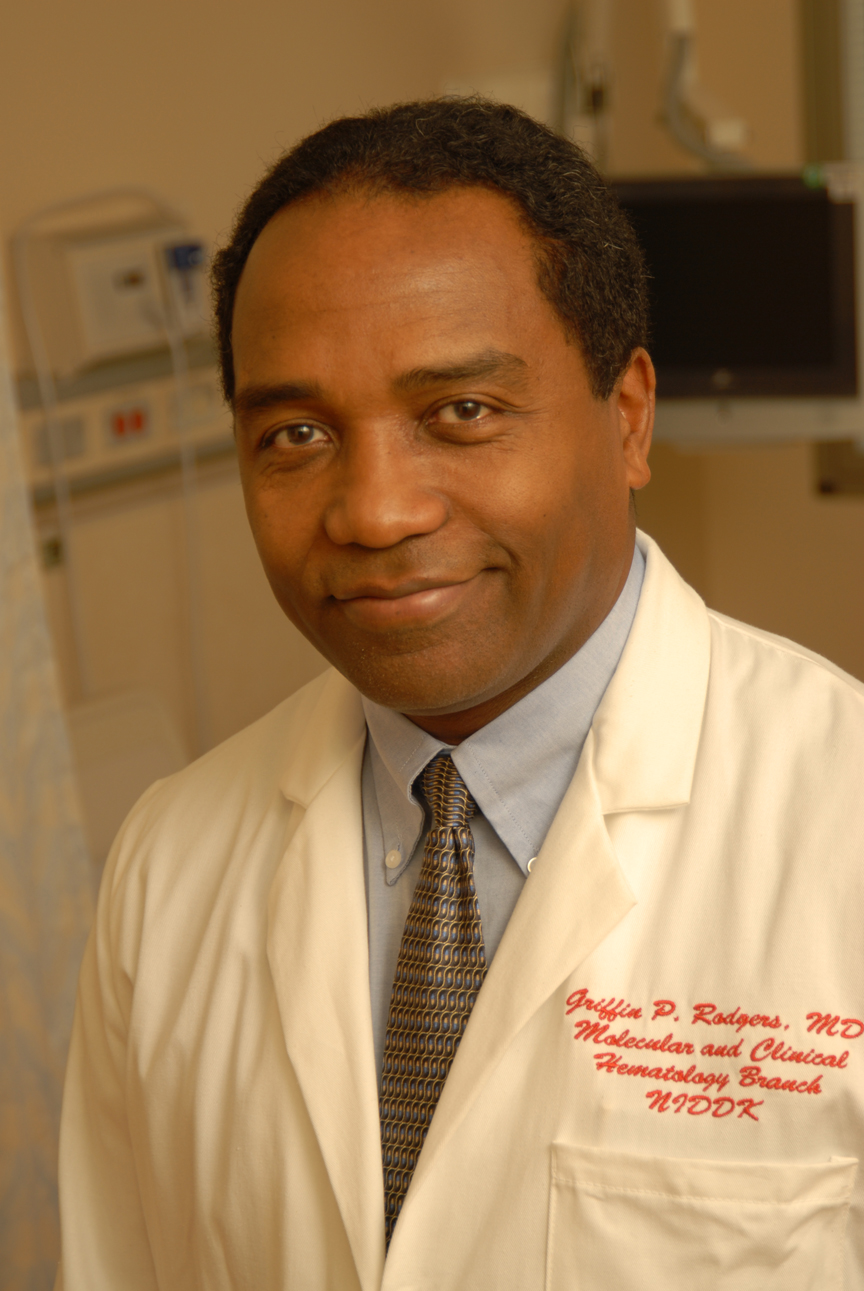 In November, the National Institute of Diabetes and Digestive and Kidney Diseases took part in commemorating National Diabetes Month through a campaign urging people to consider whether they are at risk for type 2 diabetes and, if so, to set goals and make a plan to prevent the disease and its complications.
In November, the National Institute of Diabetes and Digestive and Kidney Diseases took part in commemorating National Diabetes Month through a campaign urging people to consider whether they are at risk for type 2 diabetes and, if so, to set goals and make a plan to prevent the disease and its complications.
To that end, the National Diabetes Education Program, a collaboration between the National Institutes of Health and the Centers for Disease Control and Prevention, created a series of tips, tools and videos to help people deal with the difficult daily task of preventing or treating diabetes. These materials were created using evidence collected through the NIH’s Diabetes Prevention Program and other studies. You can find these resources at www.YourDiabetesInfo.org/HealthSense .
.
Yet clearly, diabetes isn’t only a problem in November, just as kidney diseases shouldn’t only be discussed in March, and awareness of digestive diseases shouldn’t only be promoted in May. At NIDDK, as part of NIH, we conduct research and promote understanding of how to prevent or treat these diseases all year long.
These special months, however, serve as a time when organizations work together to provide a comprehensive and unified message, one that strengthens all voices to reap lasting public health benefits.
Last month, we shined a spotlight on diabetes and encouraged people to think about the disease and ask pertinent questions: Do I have any risk factors for diabetes, such as a family history of the disease? Should I see my healthcare provider to get tested? What are some of the lifestyle changes I can make to prevent type 2 diabetes, and how can I make them?
More than one quarter of the nearly 26 million Americans estimated to have diabetes do not know they have the disease. Months that highlight diseases can serve as a wake-up call, and hopefully lead to better health. Thanks to research – including the finding that intensive control of glucose halves kidney disease in type 1 diabetes, which you can read more about later in this issue – we know that early treatment can forestall and even prevent many complications of diabetes.
These months can also be a time to renew support for family and friends at risk for or with diabetes or kidney or digestive diseases. These months may spark people to do something to better their health or that of someone they love.
The message that we send during these special months is more than just the cold facts about a disease. We translate the results of our research into methods of prevention and treatment. We say: You can be proactive in improving your health, and here are the tools to set and achieve your goals. It’s a message we strive to make resonate throughout the year.
In good health,

Dr. Griffin P. Rodgers, M.D., M.A.C.P.
Director, National Institute of Diabetes and Digestive and Kidney Diseases
Studies to promote healthy weight gain during pregnancy aim to improve outcomes for mother and child
 More than half of American women are overweight or obese, with even higher rates in some minority groups and women with lower incomes. Obesity is of particular concern in women who become pregnant, as they have an increased risk for excessive weight gain during pregnancy and post-pregnancy weight retention. Overweight and obese pregnant women also have more complications, such as gestational diabetes mellitus, pre-term delivery, and hypertension. Longer-term effects include increased risk for obesity and type 2 diabetes in both the mother and her child.
More than half of American women are overweight or obese, with even higher rates in some minority groups and women with lower incomes. Obesity is of particular concern in women who become pregnant, as they have an increased risk for excessive weight gain during pregnancy and post-pregnancy weight retention. Overweight and obese pregnant women also have more complications, such as gestational diabetes mellitus, pre-term delivery, and hypertension. Longer-term effects include increased risk for obesity and type 2 diabetes in both the mother and her child.
To improve the health of both generations, NIDDK is funding studies of lifestyle interventions in overweight and obese pregnant women. The studies, together called Lifestyle Interventions for Expectant Moms, are designed to promote appropriate weight gain during pregnancy and will follow both the mother and child for at least a year after the birth.
“The health of a woman during her pregnancy is pivotal to both her and her child’s health, and with this research, we hope to improve the outcomes of both,” said Dr. Mary Evans, director of NIDDK’s Special Projects in Nutrition, Obesity, and Digestive Diseases. “Studies of lifestyle interventions designed to produce weight loss in women who aren’t pregnant have shown health benefits. Pregnancy represents a unique opportunity to intervene and control weight gain, which may have long-term health benefits for both the mother and her offspring.”
To find out if lifestyle interventions will help overweight and obese women gain an appropriate amount of weight during pregnancy and the impact of the interventions on the health of mothers and babies, researchers at institutions around the country – including NIDDK’s intramural program, through the Phoenix Indian Medical Center – will be conducting seven independent but collaborative studies.
Along with NIDDK, several other NIH components are supporting the project, including the National Heart, Lung, and Blood Institute; the Eunice Kennedy Shriver National Institute of Child Health and Human Development; the National Center for Complementary and Alternative Medicine; the Office of Research in Women’s Health; and the Office of Behavioral & Social Science Research.
“Each site will be designing their own lifestyle intervention, but all of them will collaborate as a group to collect a core set of data in a standardized way for both mother and infant,” Dr. Evans said. This will allow us to look across studies at important results.” A team of scientists at the George Washington University will serve as a Research Coordinating Unit, which was funded in the fall of 2011. Details of the lifestyle interventions and common measures are now under development by study investigators. Study participant recruitment will likely begin in late 2012.
Nossal awards offer fellows multiple benefits
By Anne Wright
 Mastering the art of research grant writing can be challenging but worthwhile. To help NIDDK research fellows in that pursuit, the NIDDK Fellowship Office created the Nancy Nossal Fellowship Award program.
Mastering the art of research grant writing can be challenging but worthwhile. To help NIDDK research fellows in that pursuit, the NIDDK Fellowship Office created the Nancy Nossal Fellowship Award program.
Originally known as the Scientific Director’s Award, the Fellowship Office launched the award program in 2005 to complement the NIDDK’s grant-writing workshops and provide fellows with “real world” grant-writing experience, according to Fellowship Office Director Dr. Louis Simchowitz. The award program was renamed in honor of Dr. Nancy Nossal (pictured, left), former chief of the then-titled NIDDK Molecular and Cellular Biology Lab, after she died in 2006.
“Rather than simple grant-writing practice sessions, which people don’t work on with the same degree of seriousness, this [award program] gives fellows some incentive – a monetary award,” said Simchowitz.
NIDDK postdoctoral fellows, research fellows, visiting fellows, and clinical fellows are all eligible to apply for the competitive award, which is judged by a volunteer panel of intramural investigators.
NIDDK postdoctoral fellow and award recipient Michelle Bond said writing the grant helped clarify her research objectives.
“When you write a grant, you get a clearer picture of your research objectives,” Bond said. “I started writing the grant within the first month or two of my time at the NIH, so it helped me to orient myself and outline my experiments.”
Bond, who works in the NIDDK Laboratory of Cell and Molecular Biology, is studying the role of O-linked N-acetylglucosamine (O-GlcNAc) in innate immunity.
Winning a Nossal award can also be a resume builder, said Dr. Michael Krause, interim NIDDK deputy scientific director and chief of the NIDDK Molecular Biology Lab. “It goes on your resume as a competitive award.”
The program also has benefited both fellows and the NIDDK by raising the visibility and improving the quality of mentoring, said Simchowitz.
Research and clinical fellow awardees receive a one-time cash award of $5,000. Visiting fellows and Intramural Research Training Award postdoctoral fellows who receive the Nossal award have their annual stipend increased by $2,500.
The Fellowship Office accepts applications twice a year, on March 1 and September 1, and names between 8 and 12 awardees each year. Ten fellows received an award in 2011.
For more information about the Nancy Nossal Award and a list of award recipients, visit the NIDDK Fellowship Office website at http://fellowshipoffice.niddk.nih.gov.
Alaska Native program draws population to medical sciences
 A while back, Dr. Lawrence Agodoa found himself on a small plane going to a small town north of the Arctic Circle in Alaska. Though Agodoa, director of NIDDK’s Office of Minority Health Research Coordination, wasn’t a fan of the transportation, he was intent on the goal of his travel: to talk with about 150 Alaska Native students and to encourage them to get a taste of hands-on medical research through NIDDK’s Alaska Native Undergraduate Summer Internship Program (ANUSIP).
A while back, Dr. Lawrence Agodoa found himself on a small plane going to a small town north of the Arctic Circle in Alaska. Though Agodoa, director of NIDDK’s Office of Minority Health Research Coordination, wasn’t a fan of the transportation, he was intent on the goal of his travel: to talk with about 150 Alaska Native students and to encourage them to get a taste of hands-on medical research through NIDDK’s Alaska Native Undergraduate Summer Internship Program (ANUSIP).
“The need is clearly there,” said Agodoa of involving Alaska Native students in medical sciences. Alaska Natives are poorly represented in medical sciences, he said, and ANUSIP aims to change the statistics, one talented future researcher at a time. “We felt we needed to do more outreach, to give these students a clearer path to becoming physician researchers.”
To that end, the summer program – begun in 2008 – provides up to four Alaska Native undergraduates with 10 weeks of basic or clinical research education and training with experienced faculty active in research related to NIDDK’s mission, as well as a stipend for living expenses and for transportation to take part in an annual scientific research presentation.
Especially for students from rural villages, taking part in the program can be a difficult choice, Agodoa said. Families may expect their help in hunting and gathering during the summer, and traveling within the state – even in summer – can spell a long haul.
Yet the opportunity to do research on medical issues that may someday help those same communities is a great one. For Kori Radcliffe (pictured, top left, with alcohol used in making ethanol solutions), a student from Eagle River at the University of Alaska in Anchorage, the program enabled her to get more hands-on research experience. She wanted to work on a study related to alcoholism and, with the help of UAA professor Dr. Ian van Tets, learned about ANUSIP.
The internship, in which she studied the effects of ethanol consumption in a species of dwarf hamsters, also helped direct her future. “This program furthered my aspirations to become a physician and to continue research throughout my career as a student and a professional,” Radcliffe said. “The program acted as a catalyst for forming new hypotheses in my current research as well.”
Having a program targeted toward Alaska Native students is vital, Radcliffe said. “It provides individuals of the Alaska Native population an opportunity to employ their unique knowledge and experiences to further progress in health and science. Such opportunities reinforce other students’ thirst for knowledge and excitement to partake in research opportunities.”
Agodoa said that attracting young people to medical sciences and helping connect them to research opportunities is a core component of the program. He hopes that the fruits of the students’ careers will be better health for Alaska Natives, as well as everyone else. “This is what NIH is all about, what our office is all about, giving a helping hand and changing lives for the better.”
For more information about ANUSIP, go to www2.niddk.nih.gov/OMHRC/OMHRCResearchTrainingForStudents/OMHRCPacAK.htm.

Intensive therapy halves kidney disease in type 1 diabetes
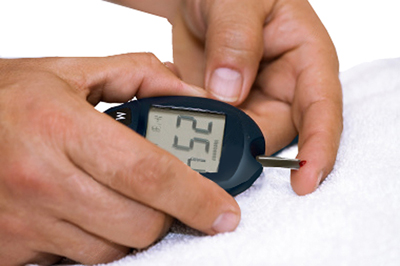 Controlling blood glucose early in the course of type 1 diabetes yields huge dividends, preserving kidney function for decades. The new finding from a study funded by NIH was published online in the New England Journal of Medicine Nov. 12. www.nih.gov/news/health/nov2011/niddk-14.htm
Controlling blood glucose early in the course of type 1 diabetes yields huge dividends, preserving kidney function for decades. The new finding from a study funded by NIH was published online in the New England Journal of Medicine Nov. 12. www.nih.gov/news/health/nov2011/niddk-14.htm
Gene variant increases risk of kidney disease in African-Americans
African-Americans with two copies of the APOL1 gene have about a 4 percent lifetime risk of developing a form of kidney disease, according to scientists at the NIH. The finding brings scientists closer to understanding why African-Americans are four times more likely to develop kidney failure than whites, as they reported in the Oct. 13 online edition of the Journal of the American Society of Nephrology. www.nih.gov/news/health/oct2011/niddk-24.htm
Complications of chronic kidney disease occur earlier in children
In what may lead to a shift in treatment, the largest prospective study of children with chronic kidney disease (CKD) has confirmed some experts’ suspicions that complications occur early. The findings suggest the need for earlier, more aggressive management of blood pressure, anemia and other problems associated with kidney disease, according to Dr. Marva Moxey-Mims, a pediatric kidney specialist at the NIH. Results of the Chronic Kidney Disease in Children (CKiD) Study are in the September issue of the Clinical Journal of the American Society of Nephrology. www.nih.gov/news/health/oct2011/niddk-03.htm
Saw palmetto no more effective than placebo for urinary symptoms
Saw palmetto, a widely used herbal dietary supplement, does not reduce urinary problems associated with prostate enlargement any better than a placebo, according to research funded by the NIH. The study was published Sept. 28 in the Journal of the American Medical Association. www.nih.gov/news/health/sep2011/niddk-27.htm

NKDEP develops Chronic Kidney Disease Diet Initiative
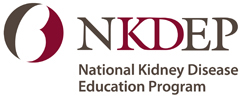 An estimated 20 million Americans may have chronic kidney disease (CKD), putting them at increased risk for kidney failure. Though CKD can often be managed in the primary care setting and integrated into existing care for patients with diabetes and hypertension, CKD remains poorly managed. This is in part because clinicians, including general practice dietitians, feel inadequately educated. Surprisingly, less than 1 percent of physicians prescribe medical nutrition therapy from a general practice dietitian for people with diabetes or kidney disease, even though the therapy is covered by Medicare.
An estimated 20 million Americans may have chronic kidney disease (CKD), putting them at increased risk for kidney failure. Though CKD can often be managed in the primary care setting and integrated into existing care for patients with diabetes and hypertension, CKD remains poorly managed. This is in part because clinicians, including general practice dietitians, feel inadequately educated. Surprisingly, less than 1 percent of physicians prescribe medical nutrition therapy from a general practice dietitian for people with diabetes or kidney disease, even though the therapy is covered by Medicare.
To improve outcomes for people with CKD, the National Kidney Disease Education Program (NKDEP) developed the CKD Diet Initiative.. The Initiative aims to provide simple, accessible professional and patient education materials to train general practice dietitians to counsel people with CKD and to facilitate referrals from primary care physicians for CKD medical nutrition therapy. Free, downloadable, and reproducible materials have been designed to provide key information about CKD and diet for registered dietitians and for the patients they counsel (www.nkdep.nih.gov/professionals/ckd-nutrition.htm).
NKDEP has also developed training materials on the CKD diet for registered dietitians. The comprehensive, evidence-based online program, launched in November, has been adapted by the American Dietetic Association as an online Certificate of Training in CKD for registered dieticians. The program – which includes interactive activities, case studies, clear graphics, and assessments – incorporates NKDEP patient materials and advice on using them in clinical practice. Additional case studies will be available for educators of dietetics students. All materials developed are in the public domain and are available on the NKDEP web site, www.nkdep.nih.gov, for use by all professionals who seek to improve care for patients with CKD.
For more information about medical nutrition therapy coverage under Medicare: www.medicare.gov/navigation/manage-your-health/preventive-services/medical-nutrition-therapy.aspx?AspxAutoDetectCookieSupport=1.
National Diabetes Month efforts focus on planning to prevent diabetes, complications
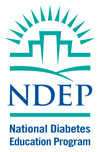
In observance of National Diabetes Month in November 2011, the National Diabetes Education Program (NDEP) – an initiative of the NIH and the Centers for Disease Control and Prevention – urged people to set goals and make plans to prevent type 2 diabetes and diabetes-related complications.
Making lifestyle changes – whether to manage or prevent diabetes – is not easy. Even if you know what to do to improve your health, figuring out how to do it and fitting it into your daily routine can be a big challenge. For example, you may know that being physically active can help you lose weight. But do you know how to become more active and keep it up over time?
The NDEP offers the following tips for making a plan and taking small, but important steps to help you reach your goal:
- Think about what is important to you and your health.
- What changes are you willing and able to make?
- Decide what steps will help you reach your health goals.
- Choose one goal to work on first. Start this week. Pick one change you can start to make immediately.
- Don’t give up. It’s common to run into some problems along the way. If things don’t go as planned, think about other ways to reach your goal.
The NDEP provides videos, tip sheets, and other educational materials to help people make a plan to prevent type 2 diabetes and diabetes-related complications. The NDEP’s online library of behavior change resources, Diabetes HealthSense, can be found at www.YourDiabetesInfo.org/HealthSense .
.
Planning and Grant Resources
NIDDK ends participation in Parent NIH Exploratory Developmental Research Grant (R21)
The NIDDK will no longer co-sponsor the NIH Exploratory Developmental Research Grant Program (Parent R21), and will not accept new or resubmitted applications in response to the Parent R21 Funding Opportunity Announcement after the expiration of PA-10-069 (i.e., for receipt dates after Cycle III for funding consideration during the May 2012 Council round). For more information, please see: http://grants.nih.gov/grants/guide/notice-files/NOT-DK-12-001.html.
NIDDK will continue to accept R21 applications for pilot projects for clinical studies/trials and secondary data analyses under separate Program Announcements.
NIDDK funding opportunities and deadlines:
www2.niddk.nih.gov/Funding/FundingOpportunities/
Grants and Contract Notices:
www2.niddk.nih.gov/Funding/FundingOpportunities/Notices

Congratulations to …
 |
NIDDK grantee Dr. Bruce A. Beutler (pictured, center left) of the Scripps Research Institute, was among three NIH grantees to have been awarded the 2011 Nobel Prize in Physiology or Medicine. He shared the award with Dr. Jules A. Hoffman and the late Dr. Ralph M. Steinman of Rockefeller University. Beutler and Hoffman’s awards recognized their discoveries concerning the activation of innate immunity. Steinman’s award recognized his discovery of the dendritic cell and its role in adaptive immunity. Image courtesy of Scripps Research Institute/Michael Balderas.
|
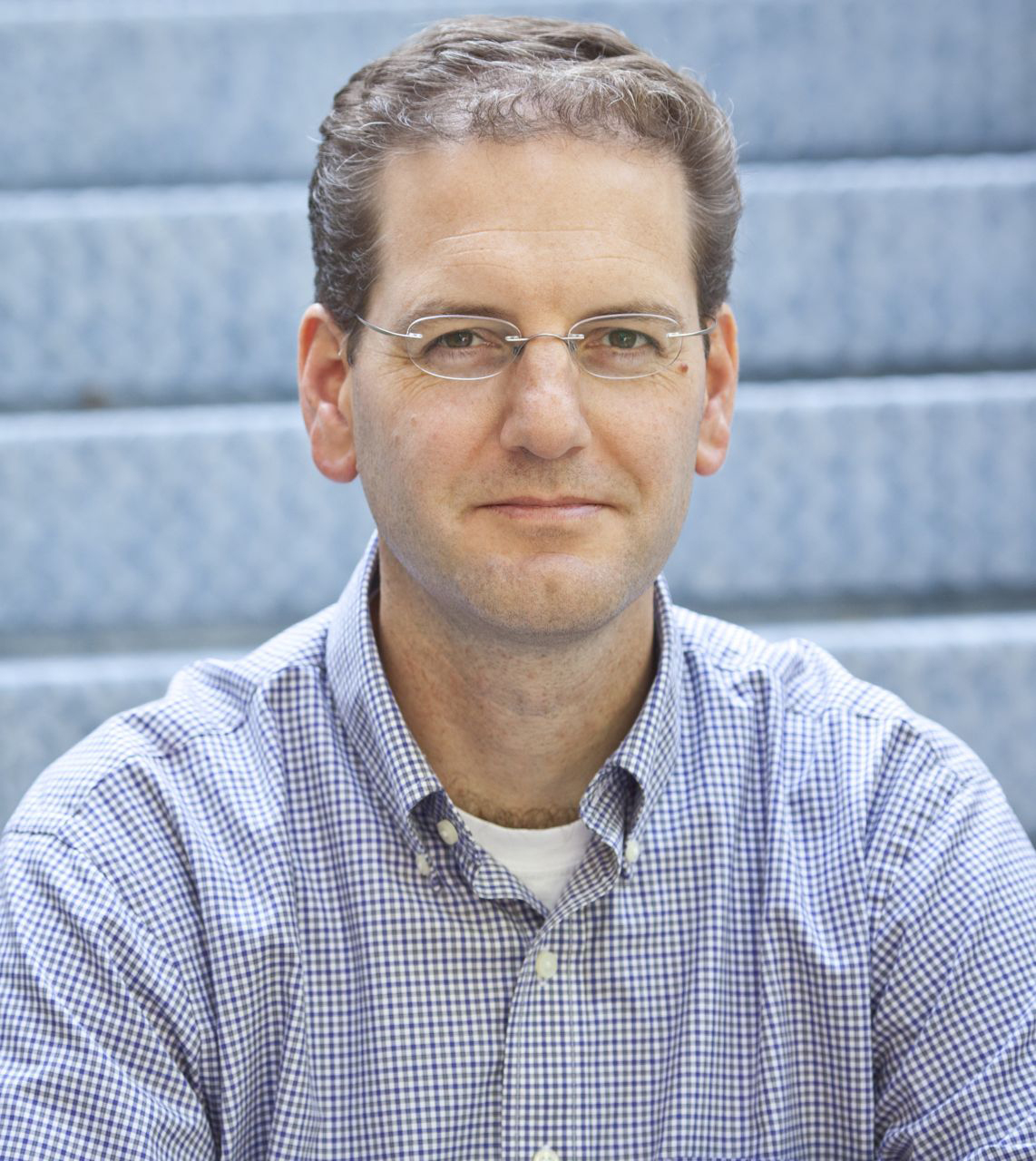 |
NIDDK grantee Dr. David T. Breault, a pediatric endocrinologist at Children’s Hospital Boston and Harvard Medical School, received a 2010 Presidential Early Career Award for Scientists and Engineers (PECASE) for his research characterizing a subpopulation of intestinal stem cells in mice with unique reparative properties identified using an innovative biomarker. PECASE is the highest honor bestowed by the U.S. government on science and engineering professionals in the early stages of their independent research careers.
|
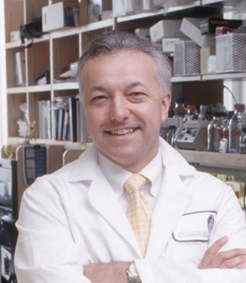 |
NIDDK grantee Dr. George Q. Daley, an investigator at the Howard Hughes Medical Institute, was elected to the Institute of Medicine in October 2011. Daley is also the Samuel E. Lux IV Professor of Hematology at Children's Hospital Boston; and professor of biological chemistry, molecular pharmacology, and pediatrics at Harvard Medical School.
|
 |
NIDDK grantee Dr. Jose C. Florez, a geneticist and endocrinologist at Harvard Medical School, received a 2010 Presidential Early Career Award for Scientists and Engineers (PECASE) for his studies to characterize genetic loci associated with type 2 diabetes and related traits in an effort to advance individualized therapy. PECASE is the highest honor bestowed by the U.S. government on science and engineering professionals in the early stages of their independent research careers.
|
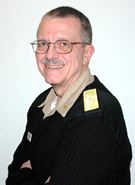 |
Dr. Van Hubbard, director of the NIH Division of Nutrition Research Coordination, was selected to receive the Barney Sellers Public Policy Award from the American Society for Parenteral and Enteral Nutrition.
|
 |
Dr. T. Jake Liang, chief of the NIDDK Liver Diseases Branch, was invited to the White House on July 28 to give a presentation on Advances in Viral Hepatitis to congressional leaders and the U.S. Department of Health and Human Services Secretary's office. The event was part of the World Hepatitis Day and sponsored by the White House Office of National AIDS Policy. He attended on behalf of the American Association for the Study of Liver Diseases.
. |
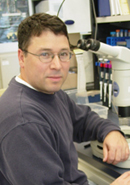 |
Dr. Kevin O’Connell, a researcher in the NIDDK Laboratory of Biochemistry and Genetics, was granted tenure by the NIH Central Tenure Committee in September 2011.
|
 |
Dr. Anne E. Sumner, chief of the Section on Ethnicity and Health in the NIDDK Diabetes, Endocrinology, and Obesity Branch, was granted tenure by the NIH Central Tenure Committee in September 2011.
|
 |
The NIH Clinical Center, the NIH’s clinical research hospital in Bethesda, Md., is the 2011 recipient of the Lasker-Bloomberg Public Service Award. The award was presented in ceremonies on Sept. 23 by the Albert and Mary Lasker Foundation, which has recognized outstanding advances in medical research each year since 1945. The award honors the Clinical Center for serving as a model institution that has transformed scientific advances into innovative therapies and provided high-quality care to patients.
|
Welcome to …
 |
Dr. Antonio Bianco, professor and chief of the Division of Endocrinology, Diabetes and Metabolism in the Department of Medicine at the University of Miami, was made a member of the NIDDK Intramural Research Program Board of Scientific Counselors. |
| Dr. Tom Ellenberger, Wittcoff Professor and head of the Department of Biochemistry and Molecular Biophysics at Washington University School of Medicine in St. Louis, was made a member of the NIDDK Intramural Research Program Board of Scientific Counselors. |
| Dr. Tim Townes, professor and chair of the Department of Biochemistry and Molecular Genetics at the University of Alabama at Birmingham, was made a member of the NIDDK Intramural Research Program Board of Scientific Counselors. |
A fond farewell to …
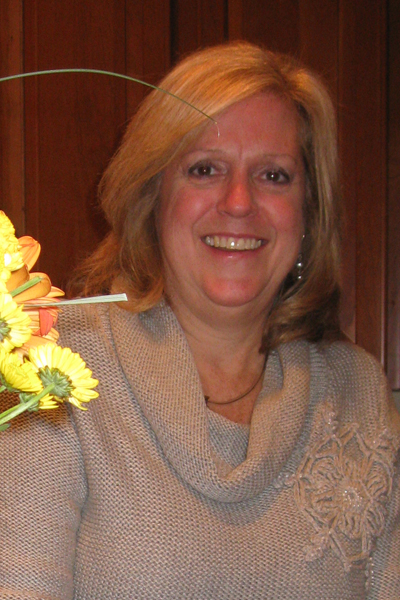 |
Dr. Patricia Robuck, senior advisor for Clinical Trials in Digestive and Liver Diseases and director of the Clinical Trials Program within NIDDK's Division of digestive Diseases and Nutrition, is retiring in December after 27 years of federal service, including 11 in NIDDK. She also served seven years at Walter Reed Army Medical Center as a nurse, nine years at the FDA in the Office of Orphan Products Development. Robuck is the recipient of four NIDDK Director's Awards and NIH Director's Group Award, among many other honors. |
The next edition of the Director’s Update will be online at www.directorsupdate.niddk.nih.gov in March.
Submission information: To submit an item for the next Update, please contact Editor Amy F. Reiter at reiteraf@niddk.nih.gov. Items must be submitted six weeks before the month of publication to be considered for the next issue.
Subscription information: The NIDDK Director’s Update is published four times a year. To subscribe to the Update, go to www.directorsupdate.niddk.nih.gov. The subscription box is near the top right of the page.
Page last updated: December 22, 2011